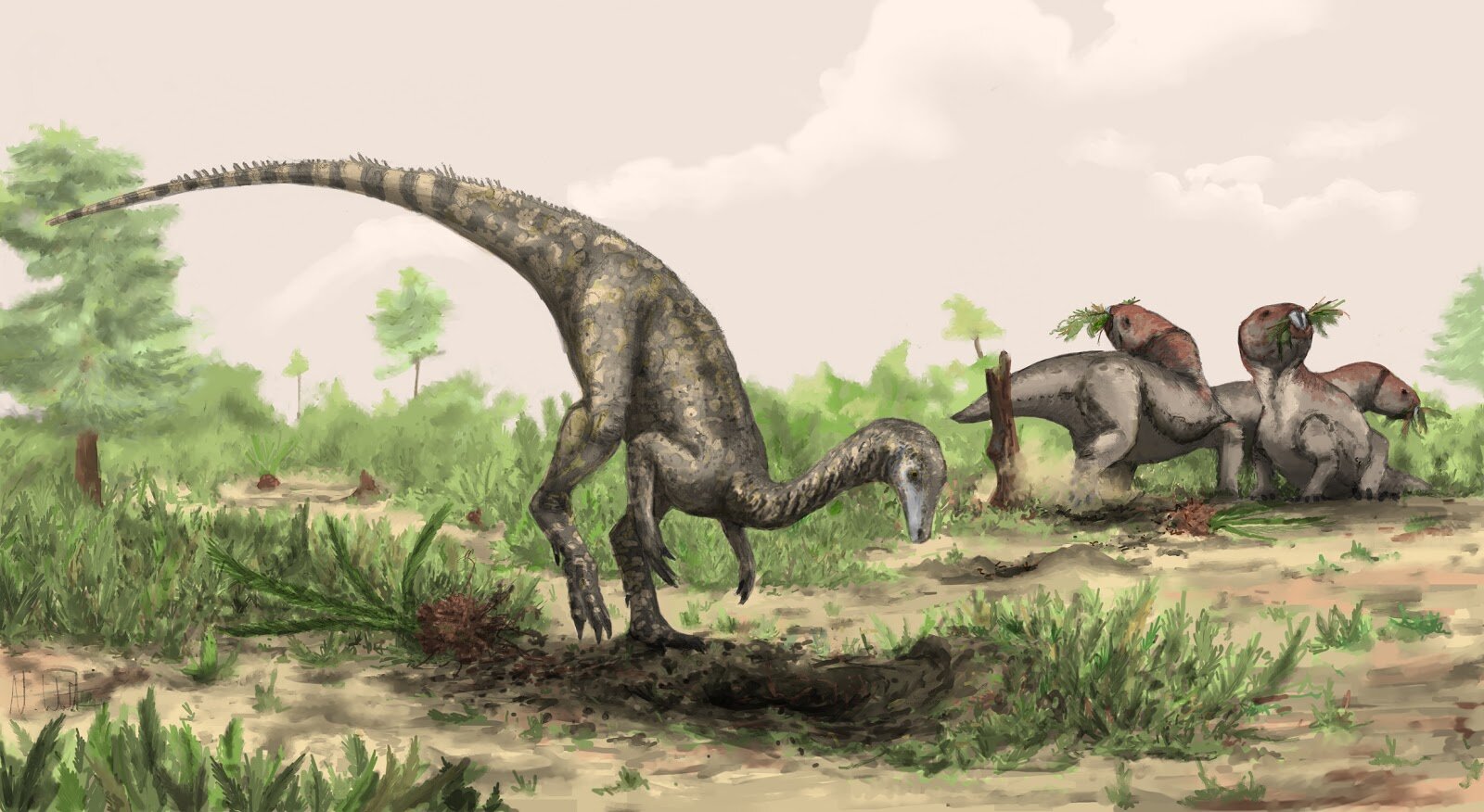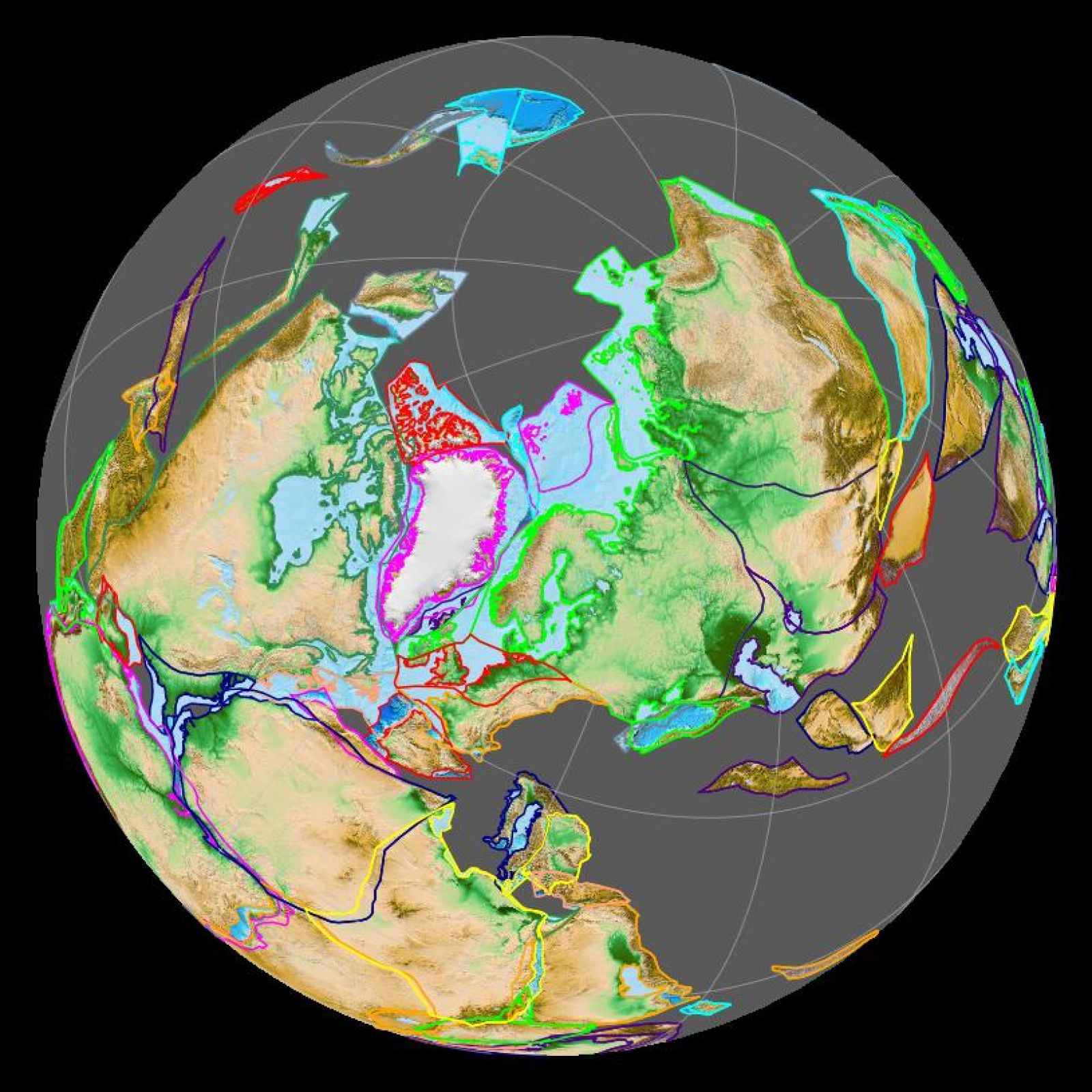The origin of dinosaurs finally revealed? 🦕
Follow us on Google News (click on ☆)
The oldest known dinosaur fossils to date date back approximately 230 million years. However, the differences observed between these fossils suggest that dinosaurs had already begun evolving well before, indicating an even older origin.

Nyasasaurus could be the oldest known dinosaur or a close relative of the first dinosaurs.
Credit: Mark Witton/The Trustees of the Natural History Museum, London
The study, published in Current Biology, uses models to fill gaps in the fossil record. It suggests that the first dinosaurs likely appeared in a warm equatorial region of the supercontinent Gondwana, which today includes the Amazon, the Congo Basin, and the Sahara Desert.
Joel Heath, lead author of the study, explains that dinosaurs may have emerged in hotter and drier environments than previously thought. Despite this, no dinosaur fossils have yet been discovered in these regions, likely due to their inaccessibility and the lack of thorough research.
The first dinosaurs were much smaller than their descendants, with a size comparable to that of a chicken or a dog. They were bipedal and likely omnivorous. Their rise was facilitated by volcanic eruptions that decimated many of their reptilian competitors around 201 million years ago.
The study's findings also suggest that dinosaurs and other reptiles may have a common origin in the low latitudes of Gondwana, before dispersing to the south of Gondwana and to Laurasia, the northern supercontinent that gave rise to Europe, Asia, and North America.

Laurasia (Laurentia, Baltica, and Siberia) forming the northern part of the supercontinent Pangaea at 200 Ma.
Image Wikimedia
This hypothesis is supported by the geographical position of these regions, which lies midway between the sites of discovery of the first dinosaurs in southern Gondwana and the fossils of their close relatives in northern Laurasia.
The researchers also explored different hypotheses about the evolutionary relationships between the first dinosaurs and their close relatives, including silesaurids, traditionally considered cousins of dinosaurs. These analyses reinforce the idea of a Gondwanan origin for dinosaurs.
Philip Mannion, co-author of the study, emphasizes that the first dinosaurs may have been well adapted to hot and arid environments. This adaptation would have allowed some groups, such as sauropods, to thrive in low latitudes, while other groups developed abilities to survive in colder regions.
Why are the first dinosaurs so hard to find?
The first dinosaurs are difficult to identify due to significant gaps in the fossil record. These gaps are due to several factors, including erosion, plate tectonics, and environmental conditions that do not favor fossilization.
Moreover, the regions where these early dinosaurs might have lived, such as the Amazon and the Congo Basin, are often inaccessible and poorly explored by paleontologists. This limits the chances of discovering fossils in these areas.
Finally, the first dinosaurs were likely small in size and limited in number, making their fossils even rarer and harder to identify among other fossil remains.
How did dinosaurs become dominant?
Dinosaurs became dominant after a series of catastrophic events, including massive volcanic eruptions around 201 million years ago. These eruptions led to drastic climate changes and the extinction of many reptilian competitors of dinosaurs.
This extinction created vacant ecological niches that dinosaurs were able to occupy. Their initial small size and omnivorous diet allowed them to quickly adapt to these new environments.
Over time, dinosaurs evolved to occupy a wide variety of ecological niches, becoming the dominant vertebrates on Earth for over 160 million years.